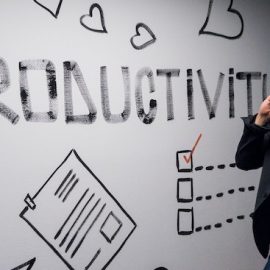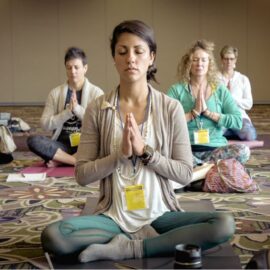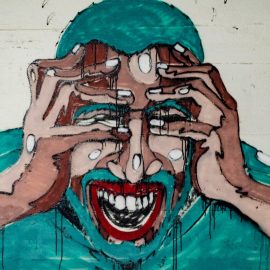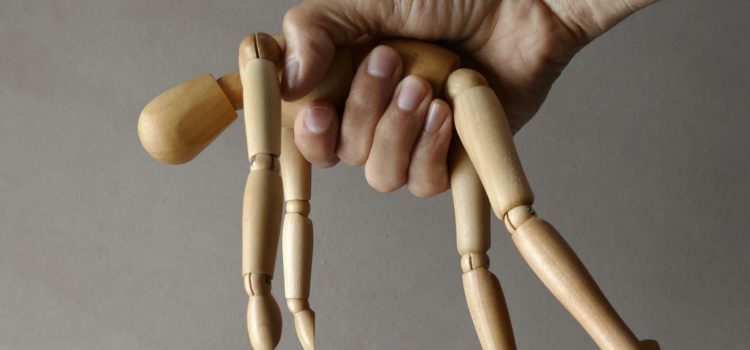
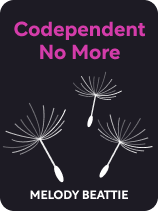
This article is an excerpt from the Shortform book guide to "Codependent No More" by Melody Beattie. Shortform has the world's best summaries and analyses of books you should be reading.
Like this article? Sign up for a free trial here .
Do you have a bad habit of trying to control others? Why is it so important to take responsibility for yourself?
If you have a codependent personality, then you probably try to control those around you, whether it’s intentional or not. However, when you spend your life trying to control others, you’re allowing other people’s lives to control you. To counter this bad habit, you need to start focusing on your own needs.
Here’s how you can regain control of your life and stop focusing on others.
Surrender Control, and Take Responsibility
Codependency is a response to prolonged stress. Usually, the codependent lost their sense of security, whether financially, emotionally, or in another person. They try to control the rest of their lives in the hope of not losing anything else. Ironically, while focusing on trying to control others, they lose control over their own behavior. To live a healthy life, they need to focus on controlling their own actions. In this article, we’ll examine the dangers of controlling others and the importance of personal responsibility.
(Shortform note: Some people handle losing their sense of security better than others. These people have a large amount of resilience. Resilience is the opposite of self-victimization: It means knowing that you can determine your own life. Resilience means accepting that outside events can affect you, but not allowing them to define you. Whereas codependents try to control everyone else, resilience takes back control of your own actions.)
Trying to Control Others Does More Harm Than Good
Beattie explains that codependents spend their time and energy trying to control people and their own life. This controlling behavior can either be blatant (“I’m in charge and you’ll listen to me!”) or subtle, through manipulation (“I’ll come with you to see your friends, it’s been ages since I’ve had a night out”) or self-victimization (“I’m so pathetic, please help me”).
(Shortform note: While overt controlling behavior is obvious, subtle manipulation is hard enough to spot that some people are manipulative without realizing it. This is especially true for those who grew up without good communication, as discussed in Chapter 3. If you find yourself guilt-tripping, lying to, or punishing people who get your way, you’re behaving manipulatively. You can communicate better by addressing the underlying issues causing you to manipulate and asking others to hold you accountable.)
When you try to control everyone and everything around you, you’re really the one being controlled by others, Beattie adds. By investing all your energy into someone else’s actions, you give them the keys to your self-control and energy. (Shortform note: This can look like letting others project their opinions on you because you’re too nervous to express your own opinions, constantly asking for advice or approval, or not taking care of yourself. These situations invite someone else to take control of the situation, since you’re not doing so yourself.)
| Loss Aversion Bias Leads to Controlling Behavior Beattie explains that people act controlling because they’re afraid of losing things. But why is this fear so powerful? It’s because of “loss aversion bias”: people’s tendency to put more value in keeping something they have than gaining something else. Controlling a situation means you can maintain a little security while dealing with family illnesses. Losing that security is scarier than gaining freedom is appealing. However, it is important to overcome this bias. The stress that comes with controlling others will eventually override the security you’re clinging to. In addition, loss aversion bias gets stronger over time. Letting go of control now will be easier than if you wait. |
Controlling Others Doesn’t Work
No matter how you go about trying to exert control, Beattie maintains that you never really succeed. You cannot control other people or events. (Shortform note: This isn’t necessarily true. It is possible to control people if you know what they want and can manipulate the situation to make their goals align with yours. However, this only works as long as the person wants the same thing. If they change their goals, for example from “Getting another drink” to “Annoying my nagging spouse,” you will lose control. However, just because you can control others doesn’t mean doing so is healthy.)
According to Beattie, even if you could control other people, it would be a bad idea. By taking control, you prevent the other person from taking responsibility for their actions. Trying to control others stops their natural growth and does more harm than good. In addition, control breeds resentment. By trying to force someone down the path of sobriety or responsibility, you might turn them away from it. You can’t change people, not in healthy or lasting ways. They will change when they are ready and not before.
| Differentiation of Self and Responsibility Beattie says you should let others be responsible for themselves. But how can you do this? The key might lie in differentiation of self, an important tenet in family system therapy. It points out that most people will take responsibility if they feel pressured to. It’s hard to let a loved one experience consequences or struggle to take care of themselves, but this is an essential part of life. The process of self-differentiation is similar to Beattie’s advice on self-care and detachment. However, it goes even further to suggest that you under-perform your own responsibilities, because not fulfilling your responsibilities might be enough pressure to make the other person fulfill theirs. This experiment in under-performing your own responsibilities cannot be a long-term solution, however, or the roles of dependent and codependent will merely switch. For a short time to apply extra pressure, though, it might be worth trying. |
Take Responsibility for Yourself, and Only Yourself
According to Beattie, the opposite of trying to control others is taking responsibility for yourself. This is hard for codependents, who like to blame others for their problems. They’re not entirely wrong: Had their loved ones not struggled with a family illness, they wouldn’t have become codependent. However, focusing on the faults of others won’t help you heal. To find healing, Beattie believes you have to focus on what you can control: your own behavior. The situation you find yourself in might be the fault of another, but your behaviors relating to that situation, including your negative behaviors, are up to you.
(Shortform note: Focusing on the faults of other people is not only unhelpful to your recovery; it can actively harm you. Focusing on the negative pushes you toward depression and low self-esteem. It forces you to see things in black-and-white, which lowers curiosity and acceptance. On the other hand, looking for the positive things in life and practicing gratitude can make you happier. If you see the best in everyone, you won’t need to control them, and you’ll be more likely to see the best in yourself too.)
That said, resist the urge to blame yourself for things out of your control. Beattie stresses that you are not responsible for the behavior of others. Internalizing this message is an essential step to healing from codependency. (Shortform note: The best way to internalize this is to recognize what you’re taking responsibility for, examine whether you can actually control those things, and discard responsibilities you can’t control.)
Escaping Reaction Mode Through Responsibility
Beattie explains that taking responsibility is important because it lets you escape reaction mode, where you allow other people to control your actions and emotions. Taking personal responsibility makes you focus on yourself, and you can choose to act rather than react.
Beattie adds that leaving reaction mode is important because reacting means you’re not acting in your best interests. Your moods and happiness are subject to the whims of others and even your own brain. You are never in a state of peace, always braced for the next shift you need to react to. This is destructive and unproductive. Learn that your emotions and actions are your own; you don’t have to let other people influence them. It is your responsibility to regulate them and react appropriately.
(Shortform note: A pervasive example of reaction mode is cell phone usage and social media. Many people react when they get a notification. While this seems like a benign form of reactivity, your emotions—a shot of dopamine at the notification—and your actions—checking your phone—are still controlled by an outside source. Combined with the addiction to validation discussed previously, this type of reaction mode can be as dangerous as its fellows.)
| The Importance of Neuro-Associations in Personal Responsibility How can you take personal responsibility? Beattie doesn’t say, but Tony Robbins suggests paying attention to your “neuro-associations.” Neuro-associations are subconscious feelings and conclusions you apply to certain actions. These associations usually form from observing other people. For example, if your friend drinks a lot, your neuro-association might be between alcohol and friendliness. You’ll react differently to someone displaying alcoholic tendencies because your brain associates these tendencies with friends rather than addiction. Recognize the subconscious associations your actions are based on. Once you know you associate alcohol with friendliness, you’ll know to be cautious around alcohol, using your conscious mind to determine risk rather than relying on your subconscious. This forces you to detach from your feelings and look at the situation rationally. |

———End of Preview———
Like what you just read? Read the rest of the world's best book summary and analysis of Melody Beattie's "Codependent No More" at Shortform .
Here's what you'll find in our full Codependent No More summary :
- What inspired codependency 12 Step Programs around the country
- Explanations, advice, and compassion for people struggling with codependency
- How to practice detachment, self-care, and personal responsibility


